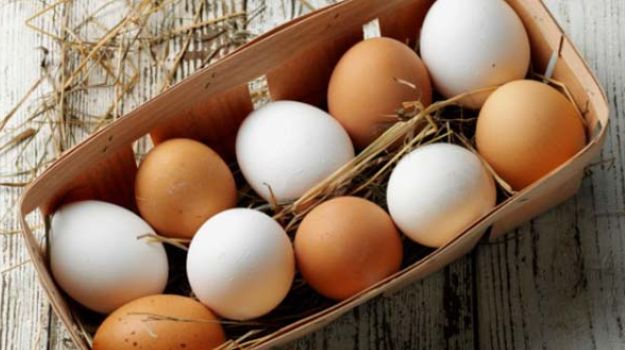A study claims that consuming foods protein rich foods such as nuts, eggs, yogurt, poultry and chocolates may help foster a more tolerant, less inflammatory gut environment, providing relief to people living with abdominal pain and diarrhea of inflammatory bowel disease.

Protein rich diet to cure bowel disease
HIGHLIGHTS
- Protein rich food may provide relief from bowel disease
- Protein rich diet to trigger the cell appearance
- Proteins help foster a more tolerant, less inflammatory gut environment
Marco Colonna, the Robert Rock Belliveau professor at University of Washington in St. Louis said "We established a link between one bacterial species - Lactobacillus reuteri - that is a normal part of the gut micro biome, and the development of a population of cells that promote tolerance."
Colonna further added "The more tryptophan the mice had in their diet, the more of these immune cells they had."
The team discovered that one group of study mice had a kind of immune cell that promotes tolerance, while a second group of study mice that were the same strain of mice but were housed far apart from the first group did not have such cells.
The mice were genetically identical but had been born and raised separately, indicating that environmental factors influenced whether the immune cells developed.
Researchers sequenced DNA from the intestines of the two groups of mice. Six bacterial species were present in the mice with the immune cells but absent from the mice without them. Researchers grew Lactobacillus reuteri in liquid and then transferred small amounts of the liquid - without bacteria - to immature immune cells isolated from mice. The immune cells developed into the tolerance-promoting cells. When the active component was purified from the liquid, it turned out to be a byproduct of tryptophan metabolism known as indole-3-lactic acid.
When the researchers doubled the amount of tryptophan in the mices feed, the number of such cells rose by about 50 per cent. When tryptophan levels were halved, the number of cells dropped by half.
Researchers said people have the same tolerance-promoting cells as mice, and most of us shelter Lactobacillus reuteri in our gastrointestinal tracts.
With inputs from PTI
DoctorNDTV is the one stop site for all your health needs providing the most credible health information, health news and tips with expert advice on healthy living, diet plans, informative videos etc. You can get the most relevant and accurate info you need about health problems like diabetes, cancer, pregnancy, HIV and AIDS, weight loss and many other lifestyle diseases. We have a panel of over 350 experts who help us develop content by giving their valuable inputs and bringing to us the latest in the world of healthcare.













